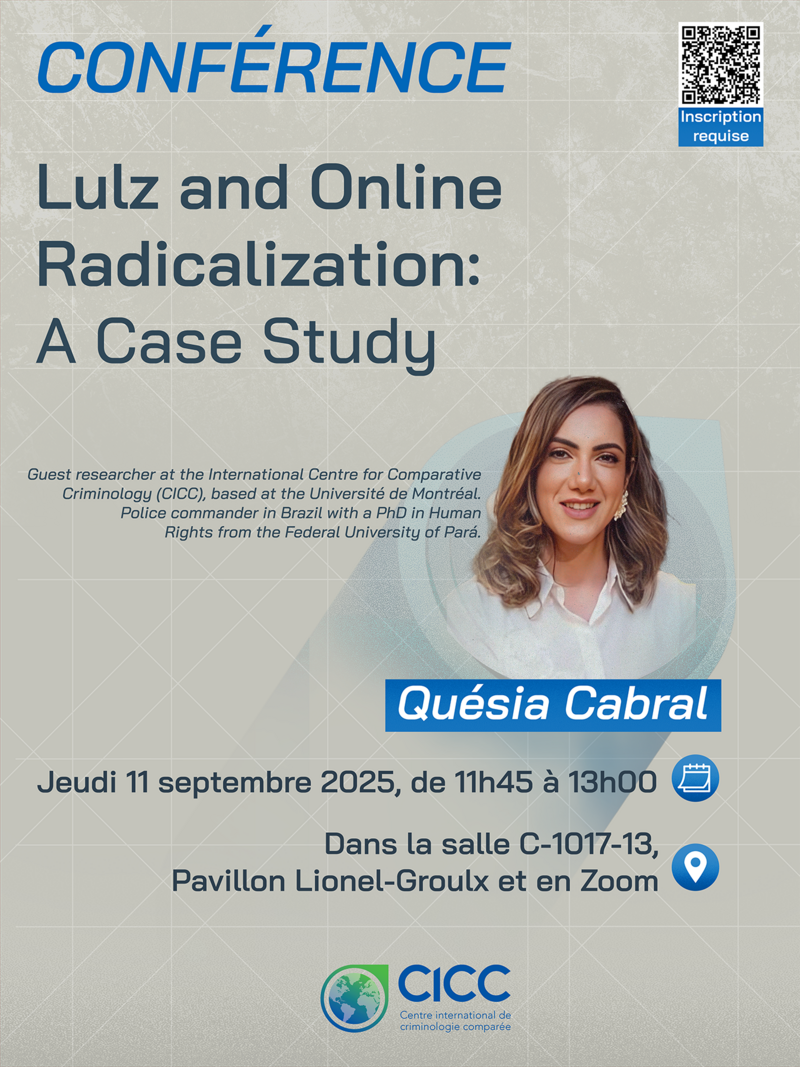
Conference by Quésia Cabral.
Thursday, September 11, 2025, from 11:45 a.m. to 1:00 p.m.
Room C-1017-13, Pavillon Lionel-Groulx, and online (Zoom)
Registration for in-person attendance.
(After registering, a confirmation email will allow you to add this event to your calendar.)
This presentation explores the use of lulz—a term associated with transgressive humor and trolling—as a potential indicator of online radicalization among adolescents involved in planning school attacks in Brazil. Based on data from a real case investigated during Operation Pessinus, the study analyzes interactions on platforms such as Discord and Instagram, where violent and misogynistic content is frequently shared under the guise of humor. The research is guided by the following question: how is lulz mobilized in digital contexts as both a marker of radicalization and a mechanism of cohesion among youths who plan acts of school violence? Using discourse analysis, the study seeks to understand how lulz contributes to the construction of violent narratives in which digital communication is not dissociated from action, but rather integrates the practices that constitute these subjects’ ways of being, acting, and relating.

Quésia Cabral
Guest researcher at the International Centre for Comparative Criminology (CICC), based at the Université de Montréal. Police commander in Brazil with a PhD in Human Rights from the Federal University of Pará. Her work focuses on online radicalization, digital criminology, and group criminality.
Attention - Votre version d'Internet Explorer est vieille de 21 ans et peut ne pas vous offrir une expérience optimale sur le site du CICC. Veuillez mettre à jour votre ordinateur pour une expérience optimale. Nous vous recommandons Firefox ou Chrome, ou encore ChromeFrame si vous êtes dans un environnement corporatif ou académique dans lequel vous ne pouvez pas mettre à jour Internet Explorer.